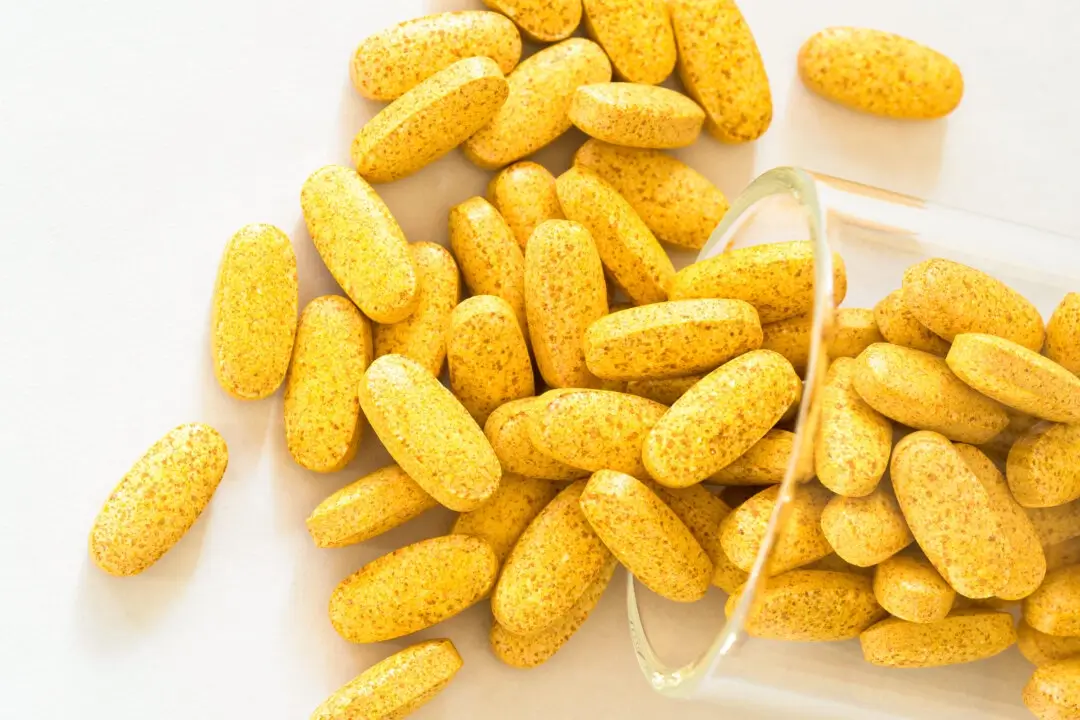
Customized B Vitamin Therapy Could Help Parkinson’s Patients, New Study Suggests
A recent study uncovers the gut-brain connection in Parkinson’s; B vitamin deficiency may play a crucial role.
By: George Citroner | The Epoch Times
A team of Japanese scientists has uncovered an unexpected link between the gut and the brain. The discovery may offer fresh insights into managing a condition that affects 9 million people worldwide.
Deficiency of 2 B Vitamins Linked to Parkinson’s
The study, published in npj Parkinson’s Disease, suggests that vitamin B deficiency may contribute to Parkinson’s development by compromising the intestinal barrier, which typically prevents toxins from entering the bloodstream. Toxins in the bloodstream may lead to neuroinflammation, which is inflammation in the nervous system often associated with neurodegenerative diseases and other neurological conditions.
Researchers used shotgun sequencing to analyse stool samples, allowing them to identify changes in the microbial community and genetic makeup. The study found fewer genes in Parkinson’s patients’ gut bacteria responsible for making vitamins B2 (riboflavin) and B7 (biotin). Both have anti-inflammatory properties and may help counteract the neuroinflammation associated with Parkinson’s disease.
This suggests that B vitamin supplementation could potentially relieve Parkinson’s symptoms and even slow disease progression, Hiroshi Nishiwaki, the lead study author, said in a statement.
Previous research has already shown that high doses of riboflavin contribute to the recovery of some motor functions in Parkinson’s patients. While there’s no specific research on biotin supplementation for Parkinson’s, one study found that high doses of biotin improved symptoms in patients with multiple sclerosis, another neurological disorder.
Customized for Individual Microbiomes
The findings also suggest that vitamin therapy could potentially be customized based on each patient’s unique microbiome profile to delay the onset of Parkinson’s-associated symptoms.
“We could perform gut microbiota analysis on patients or conduct fecal metabolite analysis,” Mr. Nishiwaki stated. “We could identify individuals with specific deficiencies and administer oral riboflavin and biotin supplements to those with decreased levels, potentially creating an effective treatment.”
The study demonstrates the importance of the gut microbiome in the progression and initiation of Parkinson’s disease, a theory first hypothesized more than 20 years ago, Dr. Raminder Parihar, director of neuromodulation at the Montefiore Neurological Surgery Movement Disorders Centre, who was not affiliated with the study, told The Epoch Times.
Anunnaki Artefacts That NASA Is Hiding (Video)
“This provides another avenue that should be further explored on using supplementation of riboflavin and biotin to slow the progression of Parkinson’s disease and potentially prevent the development of motor symptoms in Parkinson’s disease,” Dr. Parihar said.
Other Vitamins That Could Help
While no vitamins or nutrients can cure Parkinson’s disease, several may help to alleviate symptoms or reduce risk. They include:
- Vitamin D: may reduce the risk of developing the condition
- Omega-3 fatty acids: anti-inflammatory; found in fatty fish, flaxseeds, and walnuts
- Vitamin E: antioxidant that may protect against neurodegeneration and reduce oxidative stress
- Magnesium: may alleviate symptoms such as muscle cramps and rigidity
- B vitamins: B12 supplementation may help with fatigue and cognitive decline
- N-acetylcysteine: linked to dopaminergic improvement and reduced oxidative stress and inflammation
- Curcumin: found in turmeric; may protect dopamine-producing neurons
- Resveratrol: found in grapes, berries, and peanuts; may reduce oxidative stress
- Selenium: higher blood levels associated with reduced Parkinson’s risk
According to Dr. Parihar, some vitamins and minerals may interfere with levodopa, a drug commonly prescribed to Parkinson’s patients. Iron, for example, can affect the absorption of levodopa if taken simultaneously. She recommends taking iron supplements an hour after levodopa to allow for proper absorption.
Consult a health care professional before starting any supplements, as they may interact with medications or have side effects. While these vitamins and nutrients show potential benefits, they should not replace standard medical treatment for Parkinson’s disease.
* * *
NEXT UP!
This Artificial Sweetener May Harm The Gut: Study
More people are turning to artificial sweeteners in lieu of sugar in an attempt to reduce their sugar intake to manage their weight and conditions like Type 2 diabetes. However, sugar alternatives can come with their own downsides, and some may cause more problems than they solve.
Neotame, a newer type of artificial sweetener used in things like soft drinks, cakes, and chewing gum can damage the intestine and cause health issues like irritable bowel syndrome (IBS) and sepsis, according to a new in vitro study published in the Frontiers in Nutrition.
What Is Neotame?
* * *
READ MORE: B Vitamins: Your Brain’s Natural Repair Kit
Awareness! How Sugar Changes Your Brain
Telegram: Stay connected and get the latest updates by following us on Telegram!
We’d love to hear from you! If you have a comment about this article or if you have a tip for a future Collective Spark Story please let us know below in the comment section.
